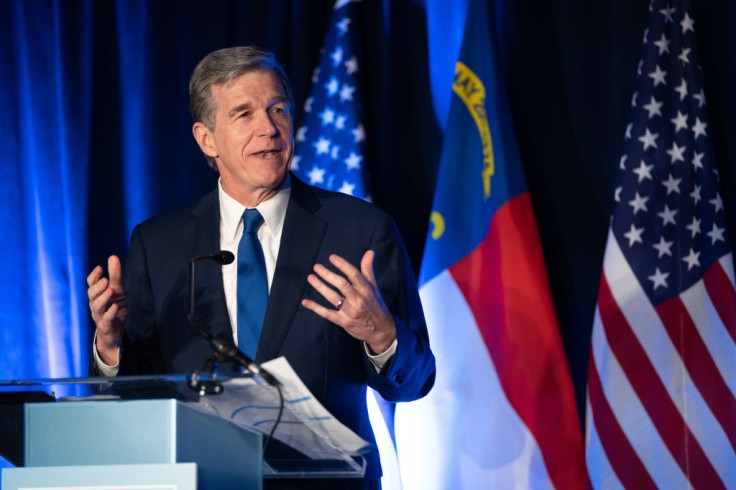
In a strong stance against discriminatory measures targeting LGBTQ youth, North Carolina Governor Roy Cooper has vetoed a set of three bills that would have imposed severe restrictions on gender-affirming healthcare for minors, transgender participation in school sports, and classroom instruction regarding gender identity and sexuality.
This move by Governor Cooper highlights his support for LGBTQ rights amidst what many perceive as an onslaught of attacks from the General Assembly.
However, due to Republicans holding narrow veto-proof majorities in both chambers, the governor's vetoes are not expected to survive override attempts.
North Carolina's Triple Threat to LGBTQ Rights
According to The Carolina Journal, Governor Cooper has denounced the trio of bills as a "triple threat of political culture wars" that would hinder doctors and parents from caring for vulnerable children.
These bills have put the lives of LGBTQ youth at the forefront of a political battleground, with legislation in numerous Republican-led states causing significant upheaval.
North Carolina had, until this point, refrained from passing LGBTQ regulations following the controversy surrounding its 2016 "bathroom bill," which resulted in substantial financial losses for the state.
Governor Cooper warns that the newly proposed policies could have a similar detrimental impact on the state's reputation and economy.
Furthermore, one of the vetoed bills would have prohibited North Carolina medical professionals from providing crucial hormone therapy, puberty-blocking drugs, and gender-transition procedures to individuals under the age of 18, with only limited medical exceptions.
While young people already receiving treatment may continue if deemed necessary by their doctors and with parental consent, the potential loss of access to these life-saving treatments is deeply concerning for many trans individuals.
To support families affected by this legislation, according to NBC News, the Campaign for Southern Equality has announced that they are now offering assistance through the Southern Trans Youth Emergency Project, helping to connect patients with gender-affirming care providers in other states and providing emergency grants for immediate needs.
Read Also: Gluten-Free Waffle Recall: Van's International Foods Issues Warning Over Undeclared Wheat
Forced Disclosure and Instruction Restrictions
Another bill, which Governor Cooper opposes, would require public school teachers to inform parents before using a different name or pronoun for a student.
This provision raises concerns among trans and nonbinary youth, who fear that it could inadvertently out closeted individuals to unsupportive parents.
However, an exception would be made to withhold school records from parents if there are concerns of abuse or neglect.
Additionally, according to ABC, the bill restricts instruction about gender identity and sexuality in K-4 classrooms, with the exception of student-initiated questions. Supporters argue that such topics should be addressed by parents rather than teachers.
While the vetoed bills face a high chance of being overridden, opponents of the legislation have vowed to challenge it in court if it becomes law.
The trend of enacting laws restricting or banning gender-affirming medical care for transgender minors has become increasingly prevalent, with at least 20 states having implemented such legislation, many of which are currently facing legal battles.
The ongoing debate highlights the deeply polarized nature of discussions surrounding LGBTQ rights.
As Governor Cooper takes a firm stance against anti-LGBTQ legislation in North Carolina, the battle for equality and inclusion continues.
The vetoed bills represent a significant challenge to the rights and well-being of LGBTQ youth, and their potential enactment could have far-reaching consequences.
While the governor's vetoes may face an uphill battle in the General Assembly, his actions send a clear message of support for the LGBTQ community.
As the state navigates the ongoing debate, the fight for equality, dignity, and acceptance remains at the forefront of the struggle for LGBTQ rights in North Carolina and beyond.